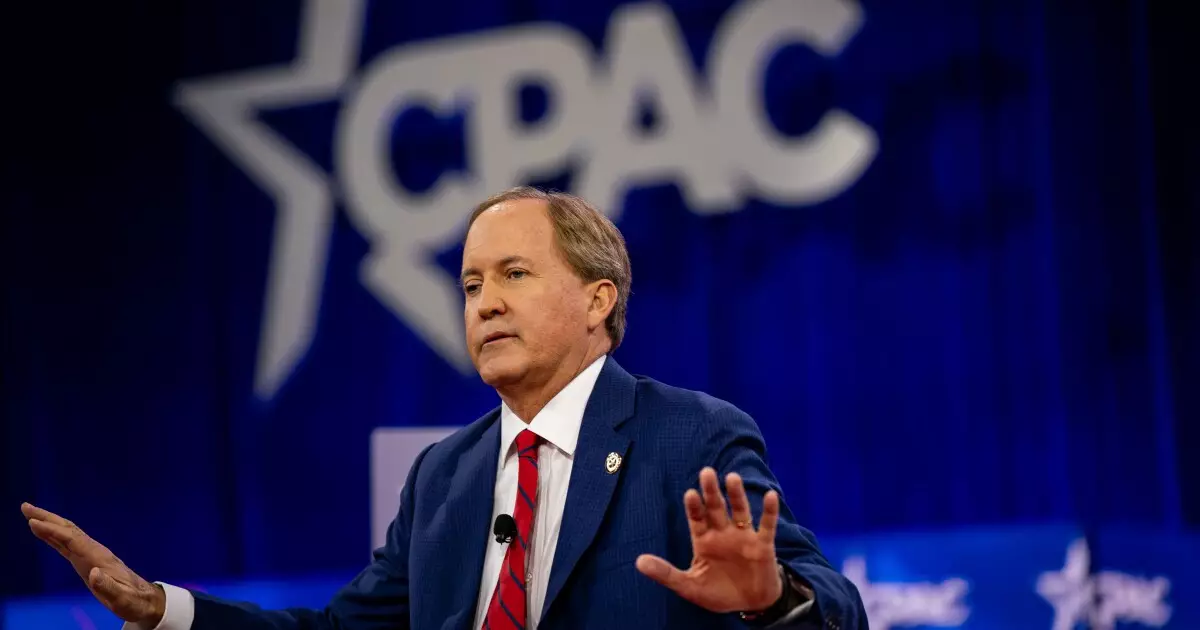The financial landscape in Texas has entered a contentious phase, particularly regarding the role of banks in environmental and social governance (ESG) issues. The recent decision by Texas Attorney General Ken Paxton to conclude a lengthy 14-month review of Wells Fargo highlights the intricate balance financial institutions must navigate between regulatory compliance, public sentiment, and their corporate governance structures. This article delves into the implications of Wells Fargo’s withdrawal from the Net-Zero Banking Alliance (NZBA) and the broader ramifications for the banking sector in Texas and beyond.
The review of Wells Fargo and other financial firms was initiated in October 2023, drawing attention to the Texas law prohibiting contracts with entities that “boycott” the fossil fuel industry. This legislation appears to be part of a broader movement in Texas aimed at countering what is perceived as a trend of financial institutions adopting policies detrimental to the oil and gas sectors. The connection between such policies and the ongoing energy debate in the U.S. has raised questions about the motivations behind the attorney general’s actions. Critics argue that this law may serve political interests rather than environmental ones, sparking fierce debates about the future of corporate responsibility in the financial industry.
By officially ending its membership in the NZBA, Wells Fargo appears to be making a strategic decision to protect its business interests within Texas, a state heavily reliant on the fossil fuel industry. The attorney general’s commendation of this move suggests that the ramifications go beyond Wells Fargo itself. Other institutions may feel pressured to reassess their ESG commitments to avoid similar scrutiny. The implications of such a shift could alter the landscape for how banking institutions engage with sustainability issues, potentially stalling progress toward a more sustainable financial model.
While the attorney general has lauded Wells Fargo’s decision to exit the NZBA, he faces legal challenges associated with the law itself. A business group challenging the constitutionality of the Texas law has filed a lawsuit against Paxton and Texas Comptroller Glenn Hegar. This legal battle could have far-reaching consequences for the state’s ability to enforce contracts that discriminate against entities advocating for fossil fuels. If the courts rule against the state, it may set a precedent that challenges the power of state governments to influence corporate policies on environmental grounds. This ongoing conflict illustrates the complexities facing regulators as they navigate the intersection of finance, law, and corporate ethics.
Wells Fargo’s case is not isolated, as the legislative environment in Texas has led to notable tensions between various financial institutions and state political agendas. The review process and subsequent outcomes have made clear that banks must reassess their positions on ESG policies, with the potential for financial and reputational ramifications looming large. As existing laws evolve, institutions must take a proactive approach to align their corporate policies with the prevailing regulatory framework while ensuring that they maintain the confidence of investors, customers, and stakeholders concerned about climate change and social responsibility.
As Wells Fargo navigates its renewed relationship with Texas, other financial firms are closely watching and likely reevaluating their policies. The interplay between aggressive legislative efforts and the evolving attitudes toward corporate responsibility encapsulates a pivotal moment for the banking industry. By distancing themselves from the NZBA, banks may believe they are protecting short-term interests, but the long-term fallout from diminishing commitments to sustainability could pose serious challenges to their reputations and operational frameworks. The next chapters in this ongoing saga will invariably reveal whether financial institutions can reconcile profitability with responsible governance in an increasingly complex and polarized environment.

